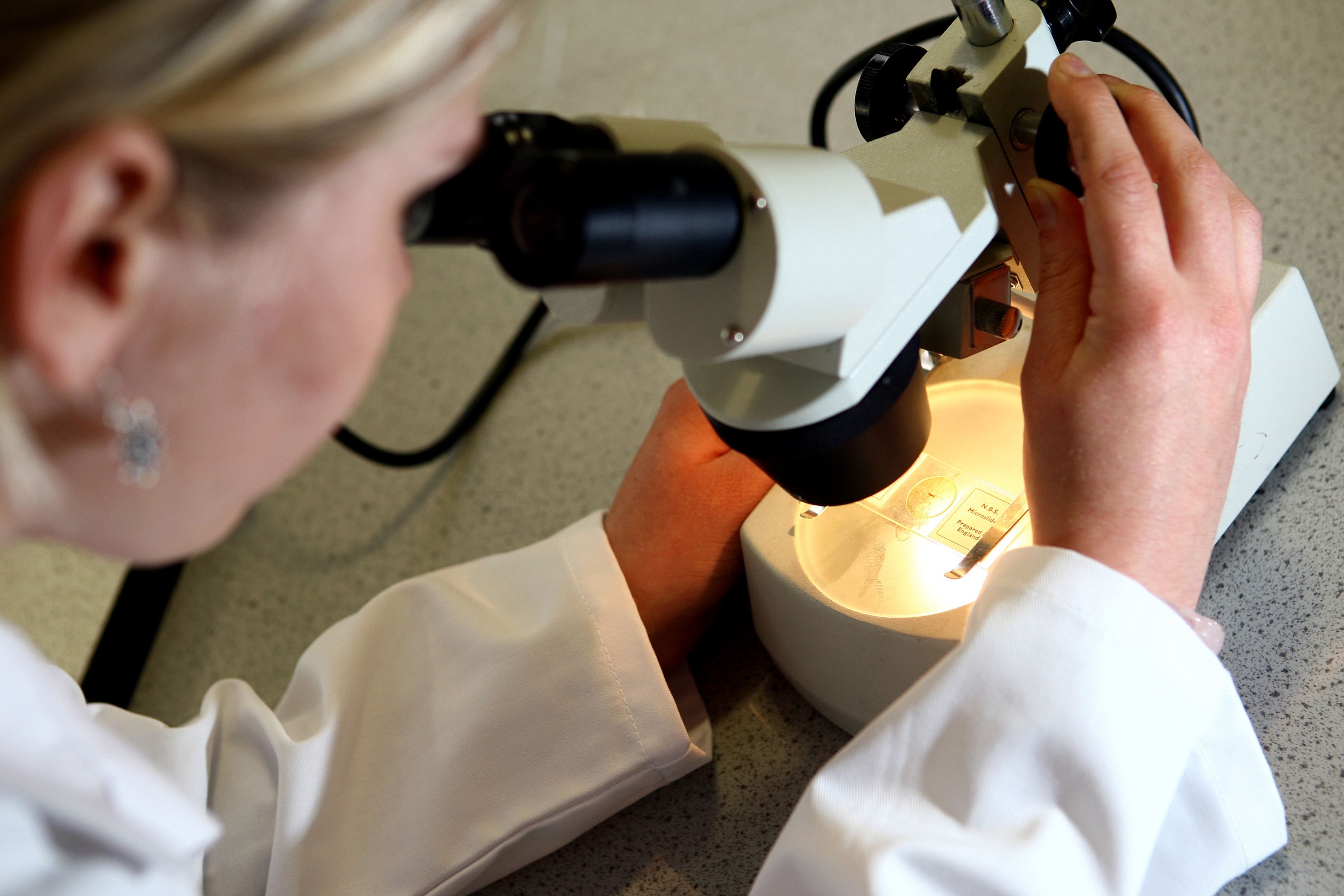UK expected to rejoin EU’s Horizon science programme after Brexit row
PM Sunak says government has been ‘extensively involved in discussions’ with the EU

Your support helps us to tell the story
From reproductive rights to climate change to Big Tech, The Independent is on the ground when the story is developing. Whether it's investigating the financials of Elon Musk's pro-Trump PAC or producing our latest documentary, 'The A Word', which shines a light on the American women fighting for reproductive rights, we know how important it is to parse out the facts from the messaging.
At such a critical moment in US history, we need reporters on the ground. Your donation allows us to keep sending journalists to speak to both sides of the story.
The Independent is trusted by Americans across the entire political spectrum. And unlike many other quality news outlets, we choose not to lock Americans out of our reporting and analysis with paywalls. We believe quality journalism should be available to everyone, paid for by those who can afford it.
Your support makes all the difference.The UK is expected to rejoin the European Union’s £85bn Horizon science research programme which it was locked out of in a Brexit row.
Science secretary Michelle Donelan appears set to confirm Britain’s associate membership as she tours broadcast studios on Thursday morning, the PA news agency understands, drawing a line under months of tense talks.
Sources familiar with the negotiations between the two sides said a day earlier that prime minister Rishi Sunak had given the go-ahead for a deal to be finalised.
Britain continued to participate under the post-Brexit trade deal brokered with Brussels but was frozen out in a tit-for-tat retaliation in a dispute over Northern Ireland arrangements.
Scientists welcomed news of the agreement, first reported by Bloomberg, having warned that the sector was disadvantaged by two missed years of collaboration.
At Prime Minister’s Questions on Wednesday, Mr Sunak told MPs his “priority and preference” was to associate with Horizon but “on terms that are right for both the British taxpayer and for British science and research”.
In a hint at a possible breakthrough, he said the government had been “extensively involved in discussions” with the EU and “I hope to be able to conclude those successfully”.
The level of compensation the EU will pay the UK for being excluded from the scheme during the bitter row over trading rules for Northern Ireland in 2020 was still thought to be an issue.
One source told PA that Mr Sunak had signalled his approval of the deal but that the rebate for the absent years could still be an issue.
A conversation with European Commission president Ursula von der Leyen was expected before the announcement.
Whitehall sources said in July that a draft deal was with the prime minister, prompting scientists to cautiously celebrate the development.
But Downing Street said a UK-based alternative known as Pioneer remained on the table as Mr Sunak continued to be concerned about “value for money”.
A senior scientist at London’s Francis Crick Institute welcomed the latest developments as “fantastic news”.
Professor Robin Lovell-Badge told BBC Radio 4’s PM programme: “We’ve really been missing being able to work properly with other European scientists.”
Dame Kate Bingham, managing partner of the healthcare fund manager SV Health Investors, said: “Collaboration with the top European researchers is critical if the UK is to become a real science superpower.”
But Labour criticised the delay, with shadow education secretary Bridget Phillipson saying: “I seriously hope that comes to pass but I do have to say what on earth have they been doing and why has it taken so long?
“This is damaging our competitiveness, it’s damaging our country and I really hope that we see progress as soon as possible.”
Horizon is a collaboration involving Europe’s leading research institutes and technology companies.
EU member states contribute funds, which are then allocated to individuals or organisations on merit to explore subjects such as climate change, medical advances and artificial intelligence.


